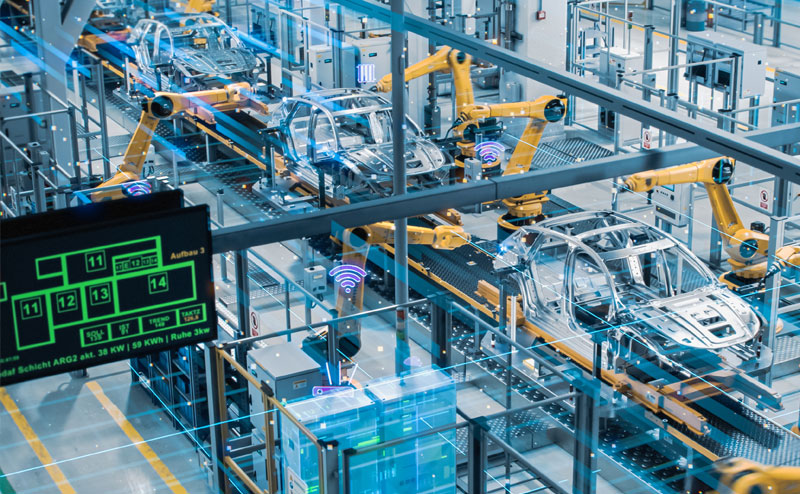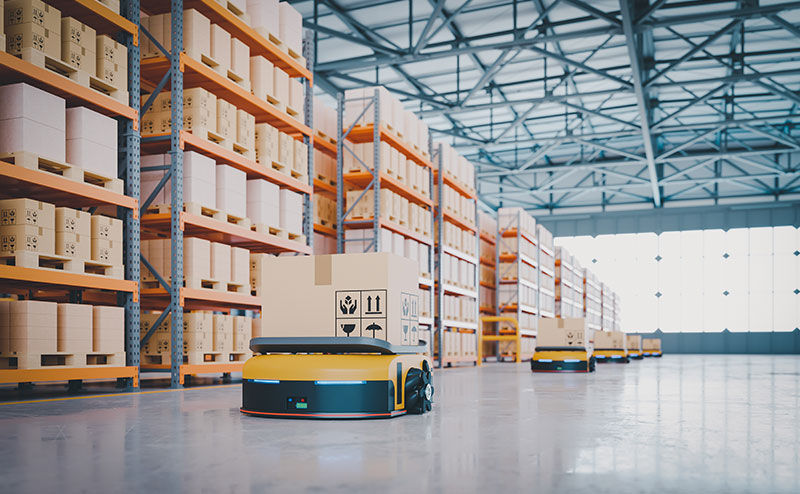All about Supply Chain 4.0
McKinsey & Company’s Supply Chain Pulse Survey demonstrates a rapid digital planning revolution, with companies accelerating the adoption of advanced tools since the COVID-19 pandemic. With 79 per cent of respondents having achieved end-to-end visibility, many are now focusing efforts on overhauling outdated planning processes to unlock their full potential.
Supply Chain 4.0 refers to the modern evolution of supply chains driven by Industry 4.0 technologies, such as automation, data analytics, AI and the Internet of Things (IoT).
This modern approach is more data-driven and strategically managed thanks to the aforementioned Industry 4.0 technologies that enable real time visibility and advanced analytics, offering many benefits to businesses within the supply chain.
Just look at the `Deep transformation with smart supply chain digitization` report by Accenture, which highlights a global retailer that increased its profits by 28 per cent and doubled its operating profit in just three years by digitising its supply chain process.
Brief history
The evolution of logistics has been quite remarkable during the past 30 years. Processes have changed from traditional, manual methods focused mainly on optimising supply lines to a much more dynamic and data-driven approach to supply chain management.
Initially, logistics was focused on efficiently transporting goods from point A to point B. Today’s supply chain management encompasses a broader range of activities, including procurement, manufacturing, distribution and even returns, connecting customers to suppliers in a seamless flow of information and goods.

In fact, Chief Supply Chain Officer (CSCO) is a role that has emerged because of this, having not existed 30 years ago. The CSCO oversees the entire supply chain and ensures that all aspects — from demand planning to delivery — are strategically aligned with the company’s goals.
Unplanned downtime
Such role reflects the importance of supply chain functions in today's business landscape, where disruptions can have significant impacts on business operations.
A common disruption manufacturers face is unplanned downtime, which refers to unexpected halts in production, usually caused by equipment failure, the absence of a preventive maintenance strategy, supply chain disruption or general poor planning.

Concerningly, the average manufacturer confronts 800 hours of equipment downtime per year — more than 15 hours per week — and that downtime comes at a cost.
Unplanned downtime costs industrial manufacturers as much as $50 billion a year, with the average automotive manufacturer losing $22,000 per minute when the production line stops.
Planning visibility
Thankfully, the integration of Supply Chain 4.0 technologies is changing how manufacturers address this issue.
According to McKinsey, 65 per cent of companies regularly use GenAI, nearly double the number compared to just ten months prior. This comes as many plants rely on reactive, run-to-fail maintenance processes, meaning that they only perform repairs after equipment has broken.

While GenAI is currently in the spotlight, AI has long been employed for predictive analytics to enhance maintenance strategies. With the integration of connected machinery and sensors (IoT), continuous data collection from equipment allows machine learning algorithms to analyse patterns and predict potential failures.
This shift from reactive to predictive maintenance means that companies can proactively address issues, performing repairs or replacements before breakdowns occur, theoretically effectively avoiding unplanned downtime altogether.
For example, in the automotive industry, industrial sensors on robots monitor their performance and general wear. The system then detects when an arm is likely to fail, thus triggering a repair order before the issue disrupts production.

This, coupled with the integration of Warehouse Management Systems (WMS), provides an added layer of data with real time tracking of inventory across facilities too. When inventory levels fall below a specific threshold, the system automatically generates replenishment orders to prevent production halts due to part shortages.
The potential impact of Supply Chain 4.0 is clear to see. In fact, another report from McKinsey & Company, specifically in automotive and assembly, demonstrate that manufacturers can see a reduction of 75 per cent in lost sales, up to 30 per cent fewer transport and warehousing costs and a decrease of up to 80 per cent in administration costs — all while cutting inventories up to 75 per cent.
The future
It goes without saying that AI is expected to be at the forefront, enabling fully autonomous operations, enhancing demand forecasting, procurement, logistics and warehouse management.
Plus, self-driving vehicles and delivery drones may optimise delivery routes and reduce transportation times too, further improving efficiency.

Blockchain technology could also enhance transparency by providing real time, tamper proof tracking of goods to improve visibility and accountability across the supply chain.
Wherever you are in your Supply Chain 4.0 journey, partnering with a reliable parts supplier is essential when mitigating the risk of unplanned downtime.
Automation partners like Foxmere ensure components, such as sensors, are readily available and that maintenance processes are optimised.
These efforts help you maintain smooth and uninterrupted operations, so if you would like assistance with your digitalisation strategy, please contact one of our expert team.


